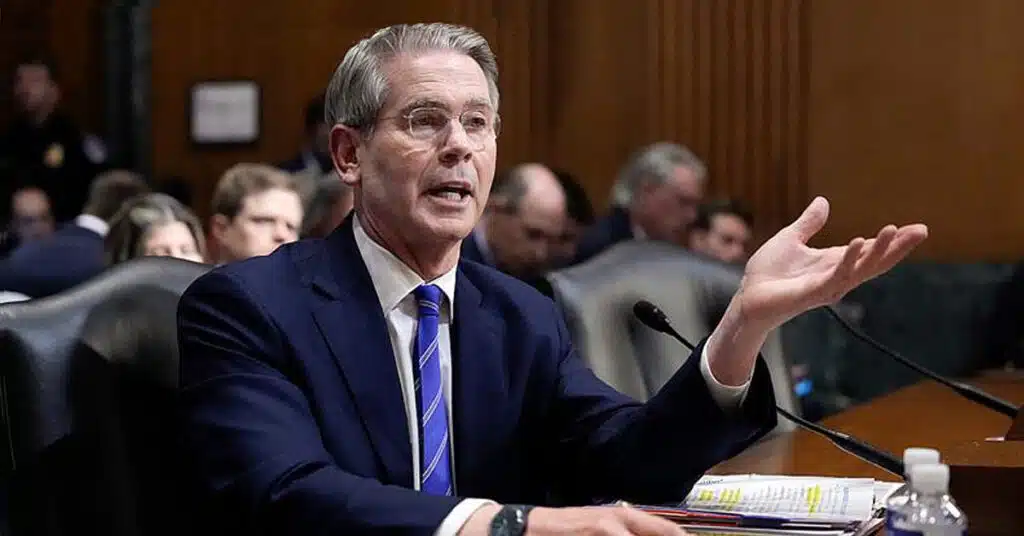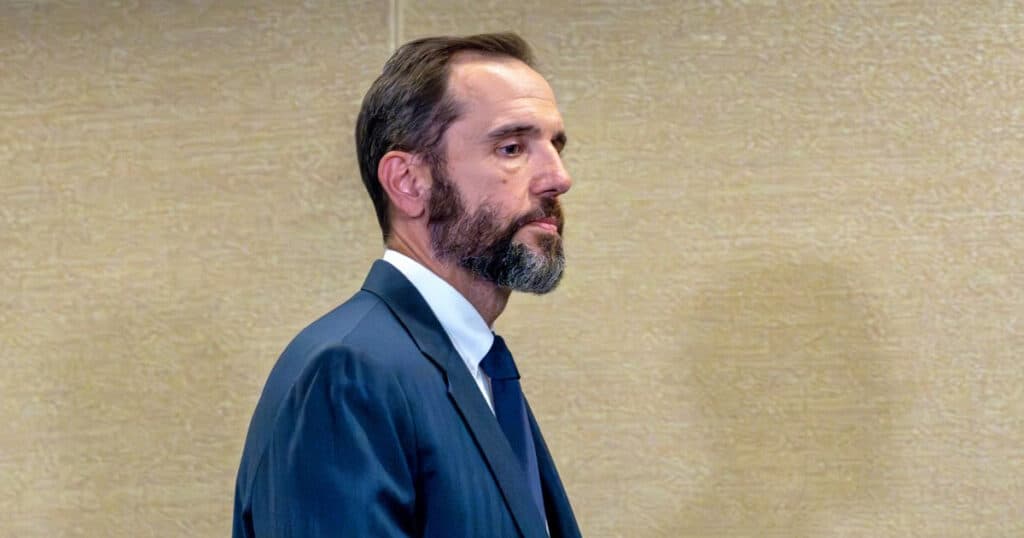
Bessent says international financial institutions aren’t doing their job
Treasury Secretary Scott Bessent called on the World Bank and the International Monetary Fund to return to their original missions and hasten to restore balance to the global financial system.
In a keynote address at the Institute of International Finance’s Global Outlook Forum on Wednesday, Bessent reinforced the administration’s stance that other countries’ trade policies with the U.S. haven’t been mutually beneficial but have unfairly advantaged those countries at America’s expense. That’s why the U.S. is working to “rebalance global commerce,” Bessent said.
“Intentional policy choices by other countries have hollowed out America’s manufacturing sector and undermined our critical supply chains, putting our national and economic security at risk,” Bessent said.
Bessent said that more than 100 countries have approached the U.S. to negotiate trade agreements since the Trump administration’s “Liberation Day” tariff announcements, but America shouldn’t be the only one initiating a correction of “imbalances” in the global economy.
The World Bank and the International Monetary Fund were founded near the end of World War II to promote global economic “cooperation and reconstruction.” But instead, both institutions have allowed other objectives to steer their decision-making rather than their original missions, Bessent said.
The IMF “devotes disproportionate time and resources” to climate change, gender and social issues, and the World Bank has prioritized green energy over affordable energy, prolonging economic stagnation in developing countries, Bessent said.
Bessent went on to list other ways in which the institutions have fallen short of their original missions, including being too soft on China.
“The IMF must be a brutal truth-teller, and not just to some members,” as it pursues the “balanced growth of international trade,” Bessent said. “The IMF needs to call out countries like China that have pursued globally distortive policies and opaque currency practices for many decades.”
It has also allowed unhealthy lending practices “by certain creditor countries” to go on, perpetuating economic distress for borrower countries, Bessent said. Instead, the IMF should maintain responsible lending standards by helping countries that are willing to reform “unsustainable” practices, he said.
“When markets fail, the IMF steps in and makes resources available. In exchange, countries implement economic reforms to resolve their balance of payments issues and support economic growth,” Bessent said.
The World Bank provides long-term financing for developing countries to achieve economic stability, but its focus on “distortionary climate financial targets” has kept some countries from reaching “energy abundance” and in so doing, is holding back their economies, according to Bessent. But Bessent said the bank also needs to start applying its “graduation policy.”
“Instead, the World Bank continues to lend every year to countries that have met the criteria to graduate from World Bank borrowing,” including China, Bessent said. “If China wants to play a role in the global economy commensurate with its actual importance, then the country needs to graduate up.”



